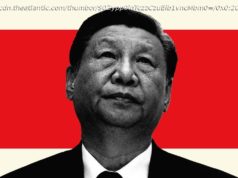The annual Wine and Dine Festival this week provides a window on how wine has worked its way into the Chinese palate
With Hong Kong’s annual Wine and Dine Festival in full flow this weekend showcasing some of the world’s finest wines, City Weekend takes a look at Hong Kong’s blossoming love affair with the tipple. Read on to understand how wine is finding its place at Chinese dinner tables… no matter whether you’ll be sipping at the Central Harbourfront Event Space or not.
Popping the cork on imports
In 2008 the Hong Kong government eliminated wine duty, creating a tax-free import system.
Since then wine has “taken off in a serious way”, Hong Kong-based wine critic Jeannie Cho Lee says. Cho is the first ethnic Asian to be a Master of Wine: the highest qualification in the industry.
Last year 63 million litres of wine were imported into Hong Kong, compared to 30 million in 2008. That’s a 110 per cent increase, according to government statistics. Over half – 58 per cent – of these wines came from France, with Australia coming in second to account for 19 per cent.
The volume of imports is expected to increase at an annual rate of 5 per cent, according to a report by Euromonitor International.
“Hong Kong has become a wine hub in the Asia-Pacific region, not only because of its tax-free policy but also because it has been strongly supported by government initiatives such as wine and dine festivals,” the report says.
The change in import regulations was a “huge gesture to promote wine as a drink that is going to be here to stay within the culture, not just in the expat community or in Western restaurants”, Lee says. It has led to a wine culture boom.
Finding its place at the table
What started off as merely Western influence 20 years ago is now becoming an ingrained part of the local culture, Lee says. There are “just as many engaged and interested wine consumers among the local community as among expats”.
Wine is increasingly on offer at local Chinese restaurants and more brands are on supermarket shelves.
“It means that every day, people from young to old, regardless of race, socio-economic background or anything else, have the same exposure,” Lee says.
Hong Kong-based Sarah Heller, the youngest Master of Wine in the world, agrees. Although wine first took off in the West, “people in Hong Kong are starting to enjoy it more and see it less as an imposed ritual”, she says. Heller set up a pop-up wine bar in the city in May.
Home-grown flavour
Hong Kong is not blessed with the space or climate to grow wine grapes, but this has not prevented attempts to establish the city’s own brands.
In 2007 the 8th Estate Winery was set up inside an industrial block in Ap Lei Chau – the second most densely populated island in the world, just off the south of Hong Kong Island. It served as an urban winery, buying grapes from quality wine-producing regions such as France and Australia to be fermented in Hong Kong.
In 2015 it produced 35,000 bottles per vintage, and it won awards in the 2011 Cathay Pacific International Wine and Spirit Competition and the 2012 Shanghai International Wine Challenge.
However, it is no longer in business.
“The problem is that wine is so fundamentally tied to the area where it is grown that projects like this don’t really connect with consumers because they feel disjointed and odd,” Heller says. “It breaks the myth of wine – made in a particular place with an integrated identity – when you separate the growing process from the production process.”
But that does not spell the end for Chinese wine.
Wine with Chinese characteristics
The first Chinese winery, named Changyu, was set up in eastern Shandong province in 1892, and today is one of the biggest producers in the country. But it was not until the mid-1980s that the commercial wine industry in China began to take off.
The country is now in the top five globally for both production and consumption, and is set to become the world’s second biggest wine market by 2020, with a value of US$21 billion, according to Foodservice Consultants Society International.
China is producing good quality wines such as Silver Heights in northern Ningxia and Grace Vineyard in Shanxi, but many face a reputational problem, often perceived as inconsistent and of poorer quality than imported wines, Lee says.
“They just don’t have the experience – the know-how of the best sites they should be planting,” she says. “All of this takes a full generation to really understand.”
“But they’re definitely improving every year – learning, understanding their soil and climate better and producing better wines.”
So it seems that no matter whether it’s a cheap bottle from 7-Eleven or an expensive glass at the Four Seasons, Chinese from north to south and expats alike are taking on board what United States founding father Benjamin Franklin said in the 1700s: “The discovery of a wine is of greater moment than the discovery of a constellation. The universe is too full of stars.”
The Hong Kong Wine and Dine Festival runs until Sunday October 29 at Central Harbourfront Event Space






